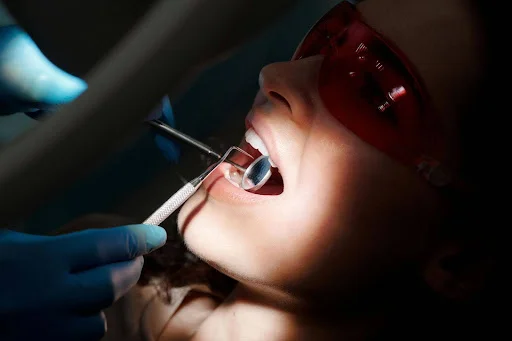Beyond Appearance: The Hidden Benefits of Oral Health
Oral health is often perceived merely as a matter of aesthetics. A beautiful smile can certainly boost one’s confidence. The implications of oral health extend far beyond just looking good.
Neglecting dental care can lead to significant consequences that affect health, emotional well-being, and even social interactions. By prioritizing oral hygiene and regular visits to a dental clinic, individuals can tap into a host of lesser-known benefits that contribute to a holistic approach to health and wellness.
The Connection Between Oral Health and Systemic Health Research has consistently shown strong links between oral health and various systemic conditions. Periodontal disease, a severe form of gum disease, has been associated with heart disease, diabetes, and respiratory issues. The inflammation caused by gum infections can contribute to cardiovascular problems, making it vital to maintain good oral hygiene practices.
Treating oral health issues improves dental health and helps mitigate risks for other chronic diseases. Regular dental check-ups can lead to early detection of issues, enabling timely interventions that protect both teeth and health.
Poor oral hygiene can adversely affect diabetes management. Individuals with diabetes are more susceptible to developing gum disease.
Those with gum disease may find it more challenging to manage their blood sugar levels effectively. By maintaining a healthy mouth, people can enhance their disease control, leading to a better quality of life.
Oral Health and Mental Well-Being
The impact of oral health on mental well-being is frequently overlooked. Individuals struggling with dental problems often experience higher levels of anxiety, stress, and depression.
The embarrassment or discomfort associated with oral issues can hinder social interactions and diminish self-esteem. As explained by professionals from Smile 4 Texas dental clinic, maintaining proper oral hygiene can help alleviate these feelings by promoting a sense of confidence and health. Visiting a dental clinic regularly assists in keeping teeth and gums healthy and contributes to a more positive self-image.
There is often a strong connection between oral pain and mental health. Chronic oral pain can lead to difficulties in performing daily tasks, affecting productivity and social engagement. With effective dental care, many individuals can free themselves from the burden of oral pain, thus enhancing their emotional well-being.
Preventive Measures and Educational Benefits
Regular visits to the dentist play a crucial role in educating individuals about their oral care. Dentists provide invaluable insights into best practices for maintaining good oral hygiene. They can identify potential issues that may go unnoticed, such as cavities or early signs of gum disease, and provide the necessary treatments.
Preventive care significantly reduces the risk of developing more severe dental problems, which can be more painful and costly to address in the long run. Dental education extends beyond the clinical environment.
Numerous clinics offer community outreach programs aimed at teaching children and adults about proper brushing techniques, the importance of flossing, and dietary choices that impact oral health. These initiatives help instill lifelong habits that maintain healthy teeth and promote physical health.
Impact on Nutrition and Digestion
The mouth is the first entry point for food, playing a crucial role in digestion. Healthy teeth and gums enable individuals to chew their food properly, aiding in the digestive process. Missing teeth or dental problems can make chewing difficult, potentially leading to poor nutritional choices or digestive issues.
For those with dental pain, the inclination may be to avoid certain foods, which can restrict dietary variety and nutrient intake. Individuals with good oral health are more likely to consume a balanced diet rich in fruits, vegetables, and whole grains, contributing to better health.
Adequate nutrition itself supports dental health, creating a positive feedback loop. This underscores the importance of maintaining teeth for appearance’s sake and for the numerous health benefits they support.
Oral Health and Sleep Quality
Good oral health is linked to improved sleep quality. Sleep apnea, a serious disorder characterized by interruptions in breathing during sleep, can be exacerbated by oral health issues such as an improper bite or missing teeth. Some dental professionals specialize in treatments that address these sleep-related problems, leading to better health and restorative sleep experiences.
Discomfort stemming from dental issues can lead to nighttime awakenings and restlessness. By alleviating pain through proper dental care, individuals can experience uninterrupted sleep, leading to improved focus, enhanced mood, and increased productivity during the day. Sleep, like nutrition and mental health, is a vital component of well-being, with oral health playing an important role in achieving quality rest.

The Role of Professional Cleanings and Care
One of the most effective ways to safeguard oral health is through professional cleanings. Dental hygienists play a pivotal role in preventing gum disease and cavities, removing plaque and tartar that cannot be eliminated through regular brushing alone. These cleanings help keep the mouth clean and allow the dentist to detect any potential underlying issues at an early stage.
Professional cleanings allow patients to engage in discussions about their home care routines and receive tailored advice based on their specific needs. This interaction reinforces the connection between good oral health practices and long-term health outcomes, encouraging individuals to be proactive in their care.
Ensuring that dental visits become a part of one’s routine contributes significantly to a comprehensive approach to health. Establishing such habits at an early age lays the groundwork for a lifetime of good health practices.
The importance of oral health extends far beyond mere aesthetics. Understanding how it impacts systemic health, mental well-being, nutrition, and even sleep can revolutionize how individuals view dental care. By prioritizing oral hygiene and fostering regular visits to a dental clinic, individuals can experience a myriad of benefits that profoundly affect their health and quality of life.







